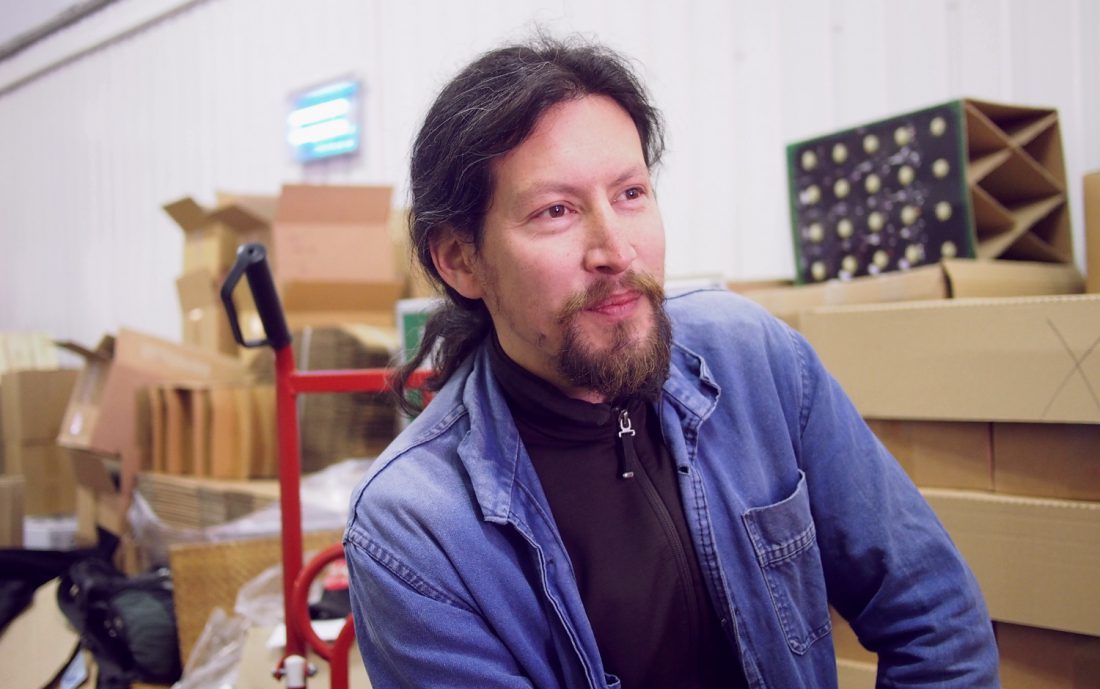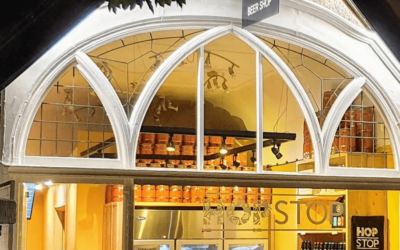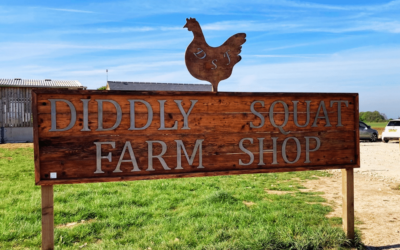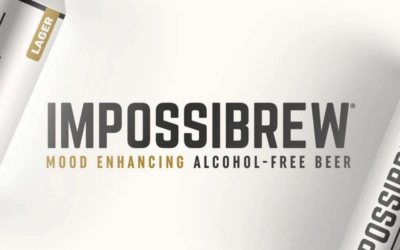The first time I came across The Kernel Brewery was in the autumn of 2011. It’s fair to say the encounter changed my view of beer forever. Here was this unassuming brewery making some of the best goddamn beer I’d ever had in my life, right there on my doorstep.
The person responsible for this revitalisation of my tastebuds was Evin O’Riordain (38). He greets me at their brewery in Dockley Road Industrial Estate in Bermondsey, wearing his trademark ponytail and blue jacket.
He hands me a glass of their London Sour. He doesn’t even ask, he knows I want it. It’s only 2.3% and good for breakfast. When I comment that it already looks fairly busy for 11 o’clock he says ‘this is nothing, we had somebody knocking on the door at half eight this morning’. His beers have become extremely popular and have earned him a widespread reputation as a master brewer.
Kernel’s fresh and hoppy pale ales are some of the best tipple that can be had in all of London and beyond. I might be biased here, but personally I think Kernel is one of the best breweries in the world. I just want to put that out there.
Evin came to London in 1999 from Waterford in Ireland. He got a job at Neal’s Yard Dairy selling artisan cheese. He was there until 2006, when he set up his own cheese shop at Borough Market. Then in 2007, his life full of cheese, destiny was about to take him down to beer town. He was sent to New York to help a customer of Neal’s Yard open a cheese shop on the lower east side of Manhattan.
“Being there opened my eyes to what beer could be. Before this, having a beer was always about the people and the pub, which is maybe what it always should be, but there was absolutely no care taken to the beer. We’d go to the Market Porter and they’d have 15 different pale ales on. It didn’t matter what we drank, because they were all tasting the same.”
In New York it was different.
Here he found a range of delicious hoppy beer, as well as people who treated beer in the same way he treated cheese.
“I knew everything about the cheese – who made it, why it was made, the story behind it, the ingredients used, what the taste is like and more importantly, if it was any good or not. I’d experienced none of those things with beer before.”
Once he got a taste of the hoppy American ales there was no going back. Yet, in the beginning he was baffled by what he tasted.
“When something is slightly outside your familiarity zone it’s quite hard to pick up what’s going on. The first time you have a sour beer it’s just “what the fuck is that?”. It’s not enjoyment or pleasure or hatred or anything, it’s just “what is it?”. You first need a framework to be able to understand things by, then the synapses are connected and you’ve got the words to describe it.”
The clean fresh pale ales he had in New York set the standard for what he would later brew himself.
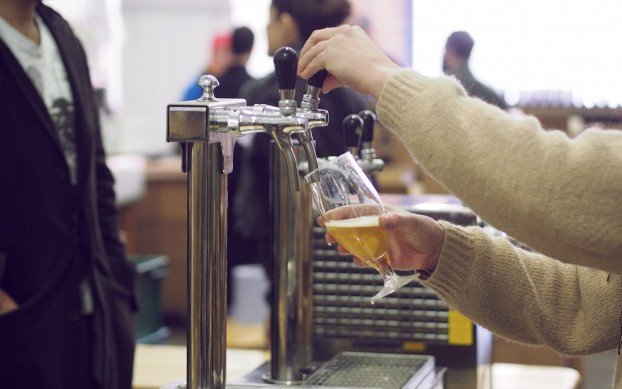
After two months in New York he came back to London, thirsty to find some good beer. He found some imported ones he recognised from the states, but having travelled halfway around the world they were old and lacked freshness.
He then heard about this new brewery, by the name of BrewDog.
“There was this “yap yap yap” from Scotland. The tone of what they’re saying and how they go about things is completely different to anything I would do, but the message I understood. Now, are you going to make the beer to back this up? Punk IPA back in those days, that was it. It was clean, fresh and bitter as fuck. Just the fact that that beer existed was enough. There were people who were doing a similar thing, and making beer I like, in a style I want to drink.”
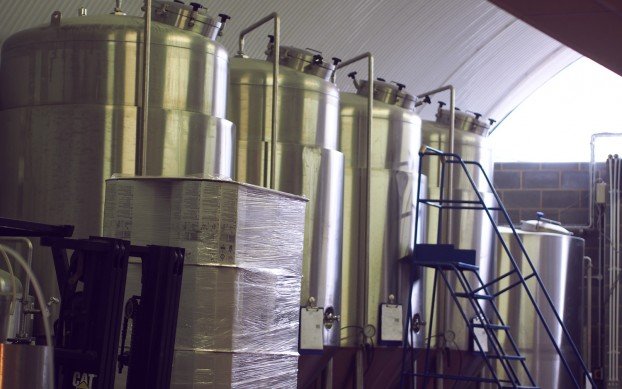
Evin’s two-year-old son Kai, who’d been rummaging around the brewery, comes running over for some daddy time. I can imagine worse places to grow up than a brewery. It’s like a big playground with machines and all sorts of exciting contraptions, plus they got a sandpit by the front counter.
Evin says Kai’s first word was “hops”, or I might have made that up. He takes out his mobile phone and shows a video of him on the bottling machine, packing bottles into boxes. He assures me it’s not child labour, he loves it and will be upset if you stop him. After a quick diaper change Evin presents him with a scooter and Kai scoots away to keep playing.
With a serious lack of good beers back in Blighty it was natural for Evin to start brewing himself. He got his kit together, bought some books on brewing, widened his brewing knowledge through the Internet and started to learn how to brew like a pro.
In my mind this is where Kernel actually started, two years before it was officially founded. So much of the ethos of Kernel stems from Evin’s home brewing days, from their branding to the decision to mainly bottle their beers.
After going at it solo for a while he joined the London Amateur Brewers as one of their first ever members. Here he met a group of dedicated home brewers.
“You go there to get your ass kicked. It was quite amazing. People would bring in beers and we’d go around the whole group and everybody would give some feedback, and there was no option of saying “oh, that’s nice”. Everyone was told to be as harsh as possible, while still being fair. We learnt what a fault tastes like, what the causes of it are and how you can go about avoiding it in the future.”
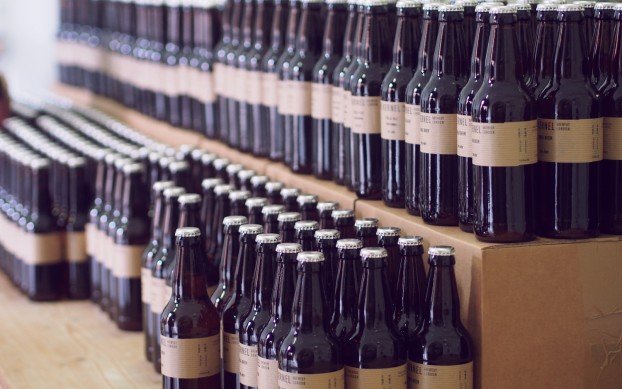
Two of the members at LAB were previously in the illustrious Durden Park Beer Circle back in the 70s. They’d spent a lot of time in the archives trying to figure out what beer was like before. They even published a couple of books, one of them the aptly named ‘Old British Beers And How To Make Them’, where they’ve taken old recipes and scaled them down to one-gallon home brew sizes.
“All of the old style recipes we make here now were inspired by being in the London Amateur Brewers. It blew my mind. The proper respect for an old recipe is to make a good beer. It’s not necessarily about following it word for word. You can follow it as closely as possible, but if you make some crap, it’s faithful perhaps, but still crap.”
Evin is a deliberate man. He’s thought this through. I think he must be very confident. At least when you see how much conviction he has in what he’s doing. And it’s working pretty damn well. When you’re talking to him you feel like you’re also getting little pieces of his whole philosophy.
When I ask him about his passion for beer, he answers “passion is a funny word. I don’t think it’s a word you can use with a straight face. It only exists in your actions. If you talk about your own passion, you are by that very act not being passionate. If someone says they’re really passionate about something they’re usually trying to sell you something.”
Hear, hear, good sir, and right you are. Now you’ve made me think about the meaning of the word passion. I didn’t think that would happen when I got up this morning.
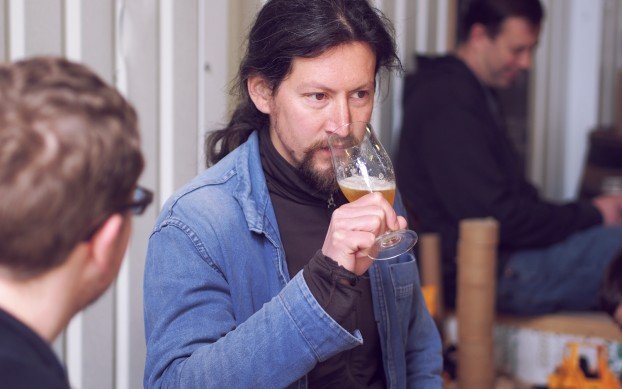
As soon as he reached a stage where he was happy with his beer there was no question about what to do next.
“Find an arch, find a brewery, find some money. I didn’t have a career I need to jump out of to start something else.”
“Find an arch, find a brewery, find some money.”
So in 2009 he went off and started The Kernel Brewery, and a whole world of beer fans are happy he did.
He set up in Maltby Street, alongside other producers of fine and delicious things. They seemed to have been a nice group of friends.
“You could go next door if you needed a cup of tea, or a fax machine.”
It was a slow start.
The first batch they all drank themselves, while building the brewery.
“We gave ourselves 6 months where we didn’t sell very much. After that we knew quite well what we were doing. It also allowed other people to come and find us. We never had to go out and push our beer, at all. The person who has come to you is much more engaged with what you’re doing because they had to make the effort. The decision was to let the beer do all the talking.”
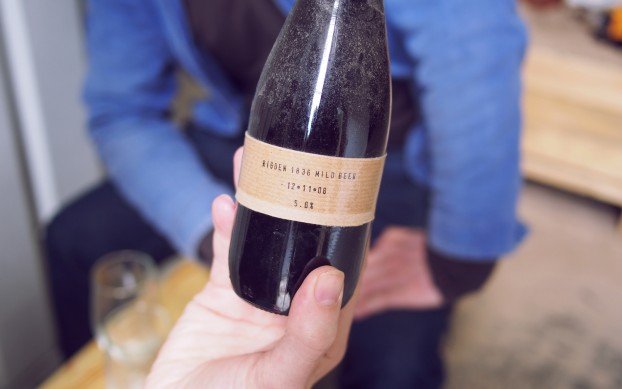
And the name? “Kernel is just a kernel of barley. The basic building block of beer. Simple as that really.”
This simplicity is also something that is reflected in their branding. Their labels stand out by being extremely simple and honest.
“There are no tasting notes. There’s not even a description. I hate being told things. When someone tells you what something tastes like on a bottle it’s almost assuming you’re stupid. I have faith in people ability to taste. By labelling our beers the way we do it’s kind of saying “you can do this guys, you don’t need anybody else to tell you.”
“The labels came from… I’ll find an old one.” Off he goes into the depth of the brewery. He comes back with a dusty bottle of beer, home brewed in 2008, a year before he started Kernel. It’s called Rigden 1836 Mild Beer. Its label is just a piece of card taped around the bottle and it looks almost exactly like their current label – it’s got the name, the date and the alcohol content stamped on the front.
“Labelling is as much a pain as bottling.” So he kept it simple and informative. All focus on the beer and no faff. The card also acted as a buffer preventing the bottles from clinking together when he packed them in boxes.
He opens the bottle with a loud pop and pours the vintage pre-Kernel brew into a glass. It froths like crazy. Evin doesn’t expect it to be good. He takes a sip.
“This is oxidised as fuck.”
It’s definitely not bad. I’ve had a lot worse from beers that hadn’t been sitting around for 5 years. It smelt of caramel and had a big hit of dusty cocoa butter on the after-taste.
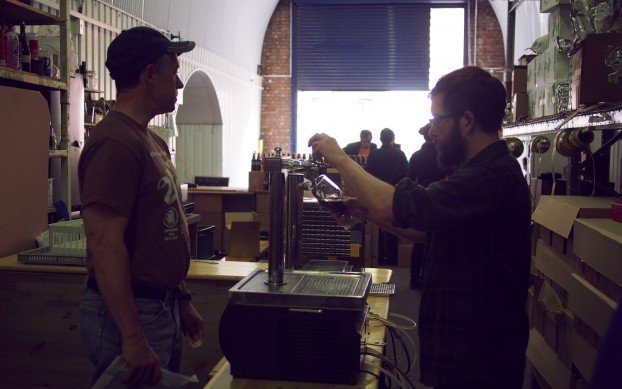
In March 2012 they moved their operation out of Maltby Street Market and into the Dockley Road Industrial Estate, along with a few of their fellow producers. At the moment they’ve got eight permanently employed brewers.
“Everyone brews. Everyone does everything – paperwork, selling, cleaning. It’s important for everyone here to have an overview, to understand the whole business of what’s going on. It’s not just about making beer.”
The people he’s employed over the years have all been people he knew, or people he met and got along with. With such a dedicated team in place he’s spending less time brewing and more time doing boring paperwork and talking on the phone.
“It used to be just me brewing, now it’s just me not brewing” he says jokingly. He is planning to do more brewing in the near future though, if he can get away from the drudgery of all the admin.
They also have space to expand quite a bit where they are at the moment, so he might have to call up some more friends to come and work for him soon.
Another thing, which is important to Evin and how he runs his business, is who they sell to. As well as being available in all the beer hot spots, plus a range of both fancy and more casual restaurants, he’s dedicated to keep his beer local.
“The decision was to let the beer do all the talking.”
‘We work to satisfy the local market. London is our main focus. A lot of the places we sell to tend to be neighbourhoodly. There might not be a great reason to go there from anywhere else, it’s for the people who live there. They obviously care enough about good beer to buy it, but it’s not necessarily their whole reason for being there. That strong local connection I think is healthy’. As I listen to him speak about how they operate I’m struck by how obvious it all seems. Why aren’t all breweries doing this? It’s all so honest and makes perfect sense.
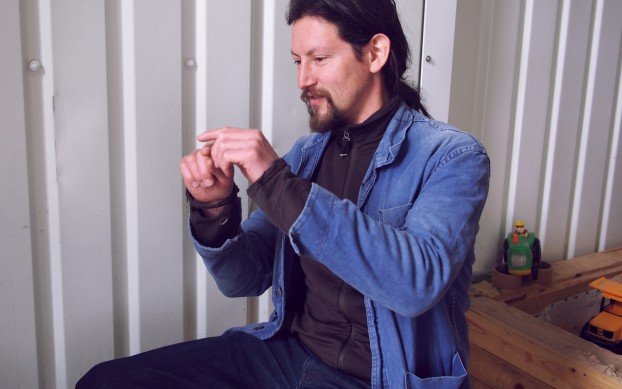
When it comes to the beer itself Evin is constantly looking to expand his knowledge. To build on what he already knows and finding ways of taking it one step further.
When I ask him if he’s a perfectionist he’s quick to answer “no, I’m the opposite. Perfection would be death. If you’ve done something perfect what chance are there for growing? It’s all about growth and development. I like things to go beyond my expectation and also beyond my control. If you’re in control of everything the only thing you’re learning is that you can control this process. I like it to go further than expected. It’s also important to be open. Open to other people’s influence, and other people’s ideas.”
If you’ve read this far, chances are that you’re already quite familiar with the output of this amazing brewery.
They don’t have a single beer they make over and over, like most breweries. Instead they change it all around on a weekly basis.
“You have to approach each beer fresh. And you approach it as it is, rather than what you want it to be. The quality has to be consistent. But I think it’s more interesting if the flavour isn’t. It means you can’t assume what you’re going to taste. If we had “The Kernel Pale Ale”, and it was the same recipe every time, after the 10th time you would remember what it tastes like, and it would make you taste what you remembered, more than what’s in front of you.”
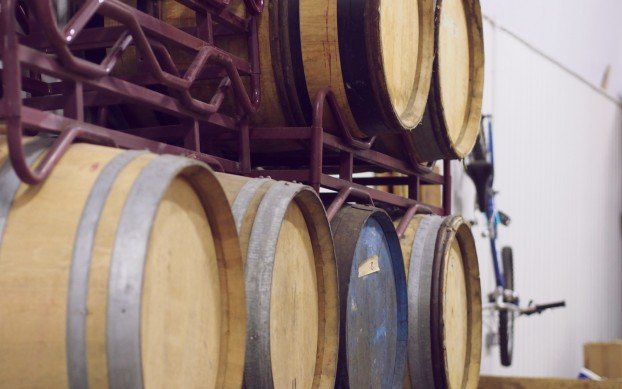
Evin is a such guru of brewing. He talks like a guru and he looks a bit like a guru. To think that 6 years ago he hadn’t brewed a single beer is plain crazy.
What’s the next step for Kernel? Well, Evin seems set on expanding his knowledge even more by venturing into barrel ageing. And maybe by doing more sour beers.
This is news that should make all the beer fans giddy with excitement. There’s a part of me that think that Evin would be good at whatever he choose to do. And that he would never do anything unless he understood it on a deep level.
His intense dislike for hype and gimmick means that everything he does is grounded in honesty and integrity. It’s a beautiful thing and I can’t wait to taste his future brews.
Originally Posted by Per Steinar on The Evening Brews on 5th June 2013. Photos by Josh Smith

